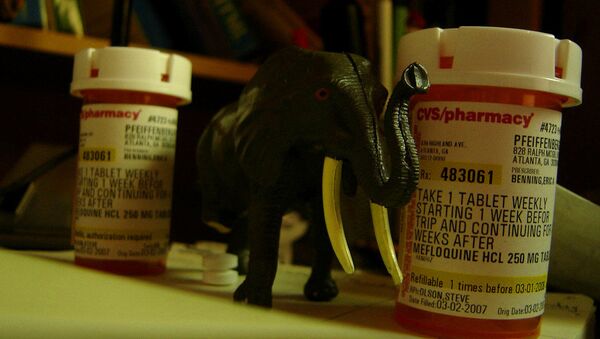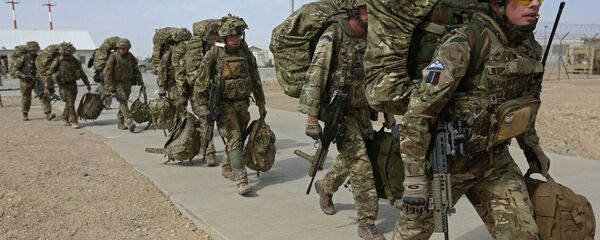Documents released as part of a Freedom of Information request revealed that since 2008, 994 British service personnel had been admitted to mental health clinics or psychiatric hospitals after taking the anti-malaria drug Lariam.
However, the problem doesn't seem to be improving with the figures revealing that last year, of the 1,892 British troops given the drug, 263 needed medical treatment as a result.
This is about #Lariam (#Larium) MoD Accused Of Taking Risks With Malaria Drug | Forces TV http://t.co/JinLUi7k6E via @po_st
— philippa tuckman (@militarylawyer1) April 17, 2015
Psychosis, suicidal thoughts, hallucinations and depression were among the most commonly reported side effects from people who had taken Lariam.
The UK's Ministry of Defence (MoD) has consistently defended its use of the drug, despite widespread concerns from veterans, their families and campaigners that its use is contributing to an epidemic of mental health issues within Britain's armed forces.
Doctors Warned of Hallucinations, Psychosis, Suicide
The concerns about the dangerous side-effects of using Lariam have been known as far back as 2007, when Dr Franz B Humer, then chairman of Roche, the company that manufactures the drug, at a general meeting said that "more effective anti-malarials with better side-effect profiles were now available."
MoD accused of knowingly taking risks with the mental health of soldiers by using malaria drug Lariam. More on @Forces_TV #military #malaria
— Alex Griffiths (@AGriffithsMedia) April 16, 2015
Meanwhile, in a further damning statement, Roche wrote to doctors in Britain in 2013, warning that "hallucinations, psychosis, suicide, suicidal thoughts and self-endangering behaviour have been reported," as a result of using Lariam, adding that the drug "may induce potentially serious neuropsychiatric disorders."
The MoD justifies its use of Lariam on Public Health England guidelines, which states that the drug is "part of the range of malaria prevention treatments recommended," despite health officials warning that the use of Lariam "may increase the risk of psychosis and anxiety reactions."
The use of Lariam, also known as mefloquine, has been banned, or used as an absolute last resort by the US, Germany, The Netherlands and Canada, while it's understood that MoD issues the drug to British troops, but not pilots or drivers, increasing speculation that authorities are aware of the concerning potential side-effects.
@DJack_Journo @Independent @DefenceHQ What a shameful way to treat people who have no choice about whether to take it. They deserve better.
— Charlotte Booth (@CharlotteB1) April 16, 2015
Britain's major opposition party, Labour, have said they will undertake an immediate review of the drug's use should they form government, with Labour parliamentary candidate Madeline Moon saying that the MoD was imposing a "Russian roulette risk" on the health of servicemen and women:
"This is a horrific situation and it beggars belief that the MoD is still refusing to stop dispensing Lariam."
Former Major-General Alastair Duncan, who was responsible for leading British forces in Bosnia, is understood to be in a psychiatric hospital after taking the drug. His wife Ellen told The Independent newspaper that UK officials were "staggeringly unprepared to deal with the fallout" of the use of Lariam.
"Like others, I believe that this is a scandal. If 1,000 troops have reported the effects then you can be sure there are others who have not… The long-term effects of this will be more and more in evidence over the coming years," she said.
A Price on Mental Health?
Other critics of the MoD's use of Lariam have pointed out that the drug is considerably cheaper than alternate drugs such as Doxycycline and Malarone, leading to suggestions that it is being used to save costs.
Tony Hayes, CEO of the Veterans Association UK (VAUK) told Sputnik that the lack of support given in general to returning veterans who have suffered as a result of conflict "beggars belief."
"In regards to the treatment of our guys, we're treated like absolute crap. If there are 1,000 people suffering from the side-effects of this drug, then it doesn't surprise me that it would be kept very quiet. If the British government can save a penny on something, they will do so."
"It's extremely frustrating from my point of view. It's a dire situation, it shouldn't be happening," said Hayes.




